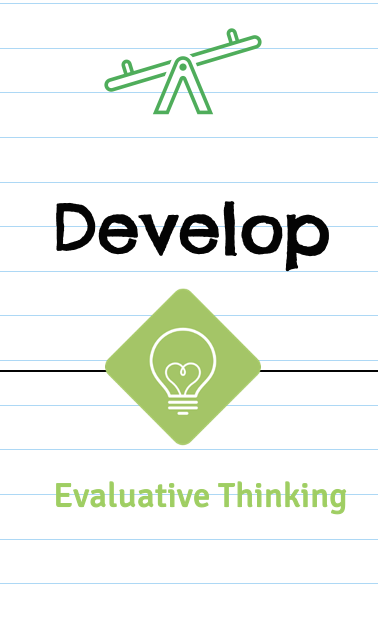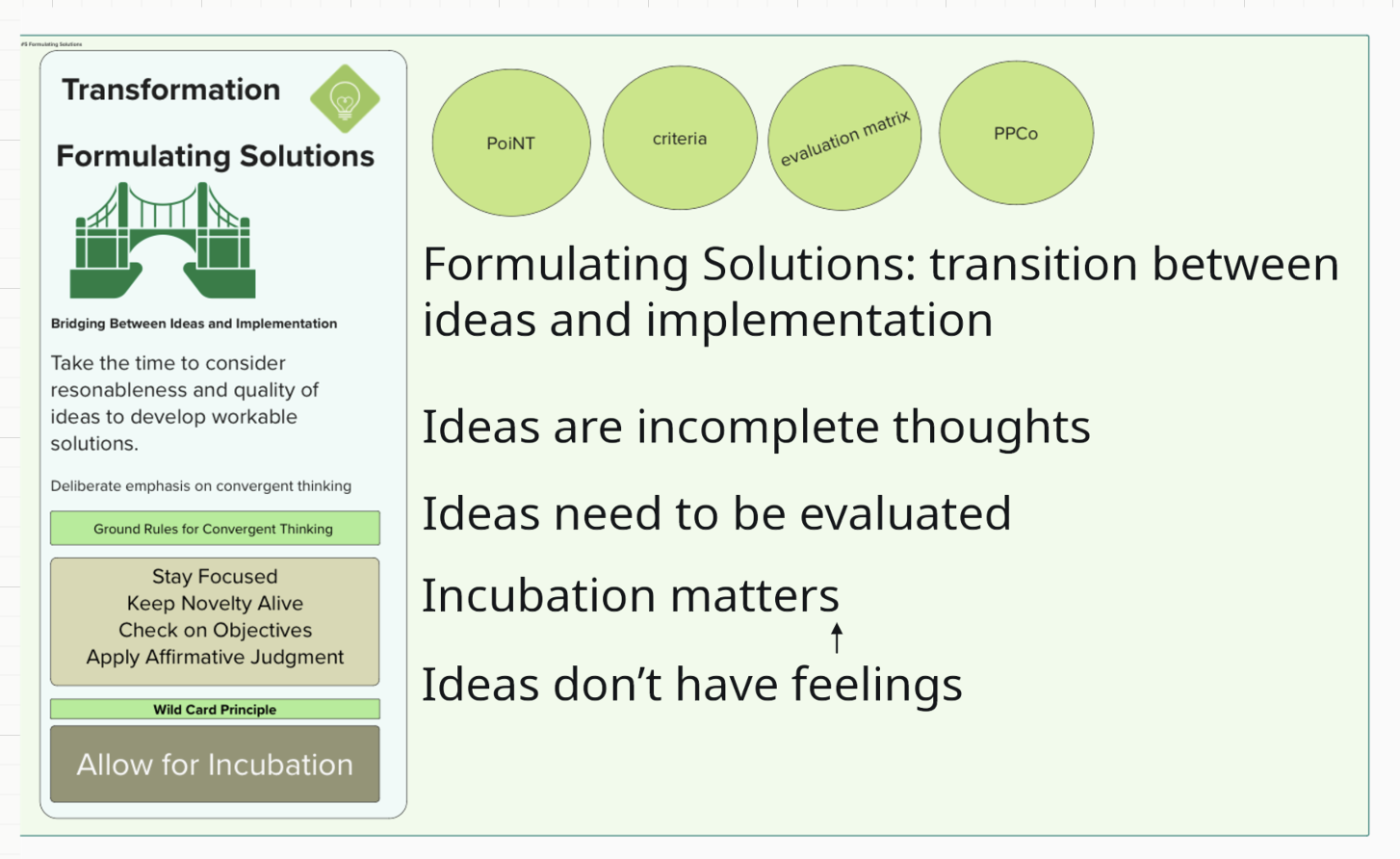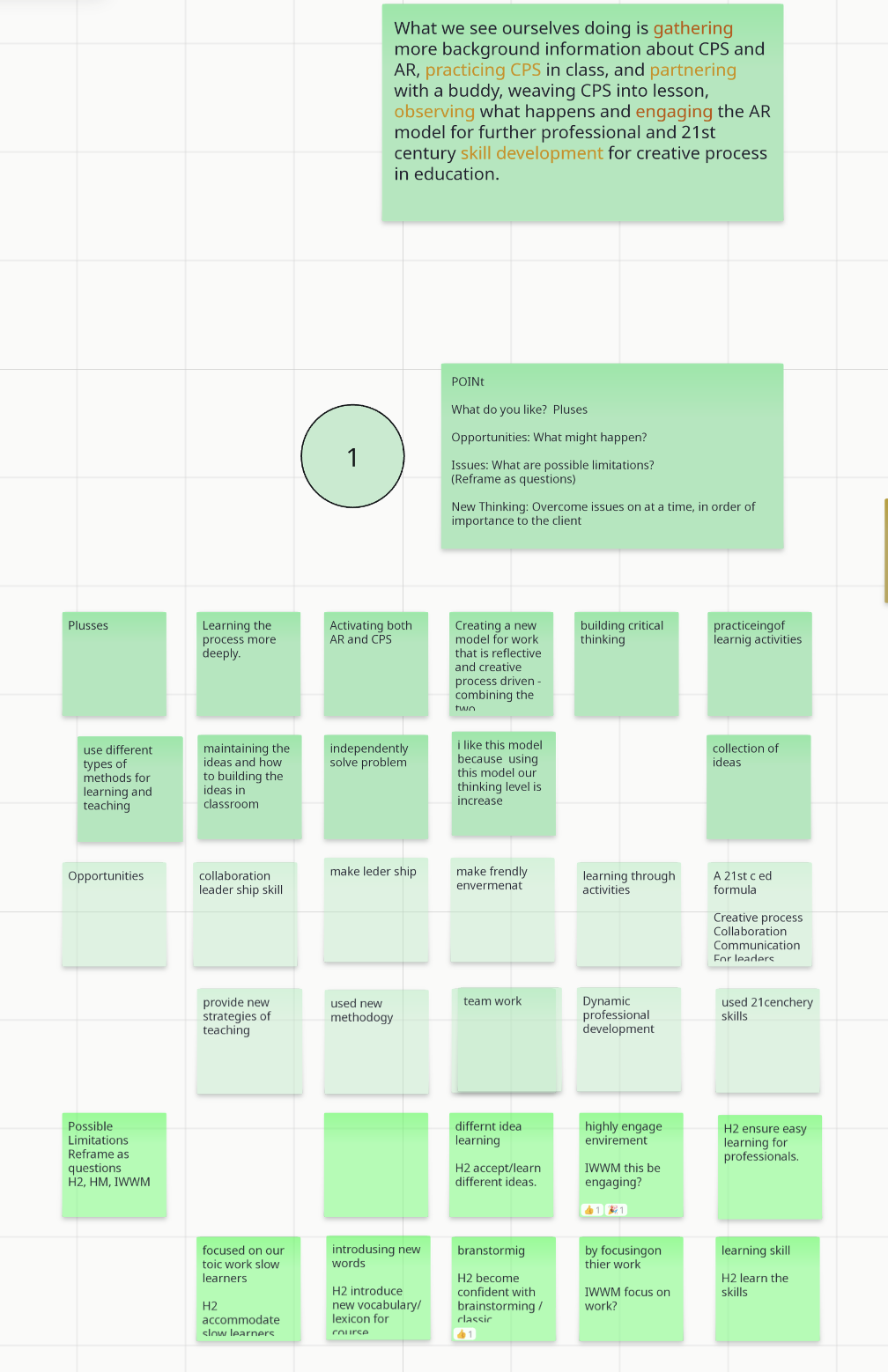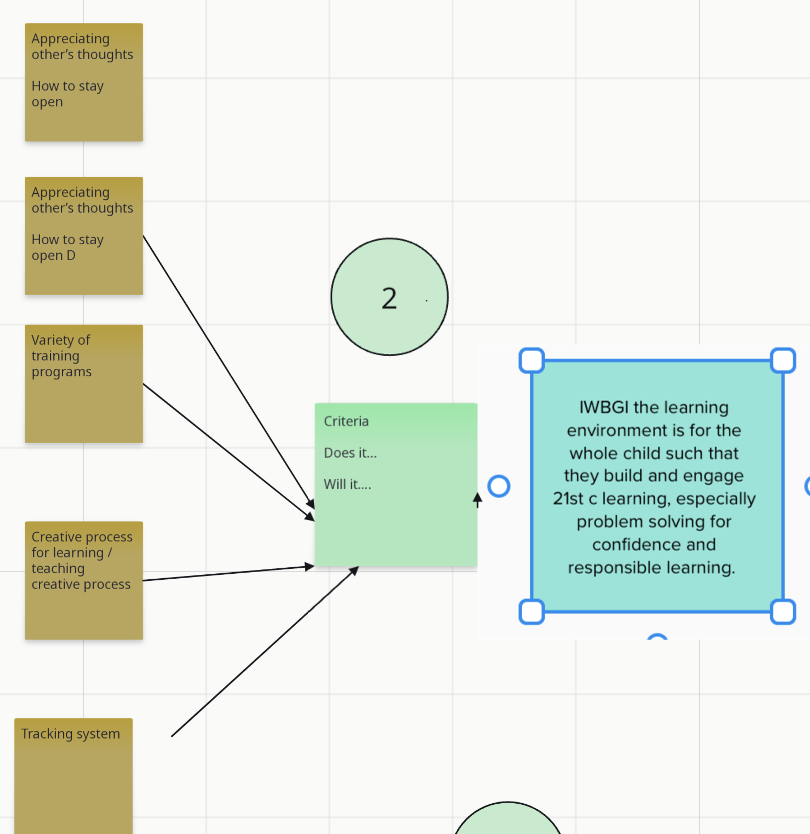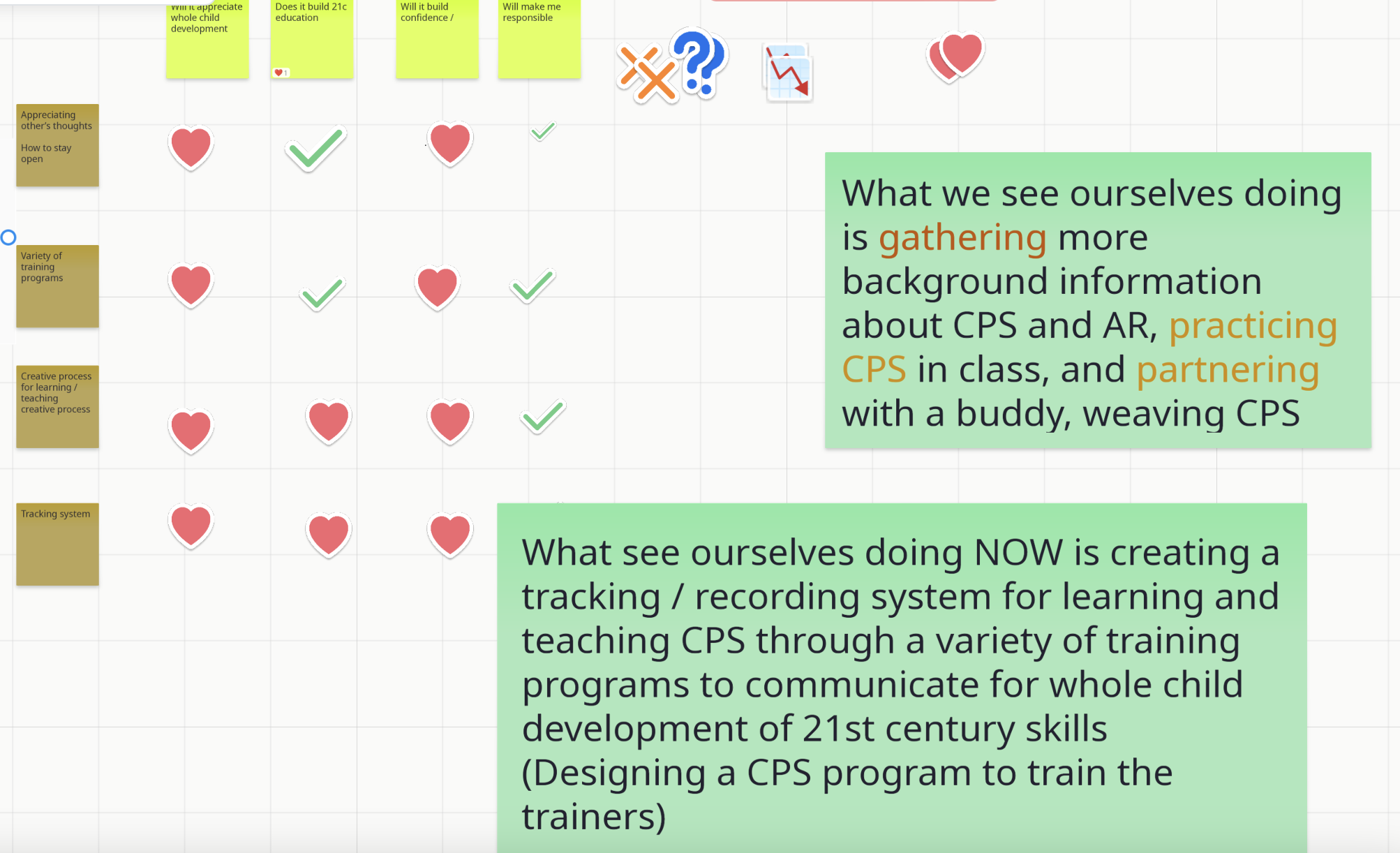AR II : CPS - Transformation
Formulating Solutions
Evaluative thinking
Transition between Ideas and Implementation.
Time to consider reasonableness and quality of ideas.
Evaluate ideas fairly and deliberately.
Diverge twice for novelty
Converge with statement starters
Evaluative Thinking is the second step within the Transformation stage of CPS.
Ideational Thinking and Evaluative Thinking are at the center of creative process for complex problem solving. Ideational Thinking is divergent; Evaluative Thinking is convergent. Together they form the dynamic balance; ideas are not fully formed thoughts; developing them for reasonableness is key.
Leaders are most tasked with solutions. While ideas are the currency of creativity, Evaluative Thinking is invaluable in taking out some of the guess work for decision making.
Evaluative Thinking weighs up ideas fairly and deliberately. The integration of divergent and convergent thinking within evaluative tools strengthens the potential of unusual ideas. This is a key characteristic of Evaluative Thinking
Tool: POINt
Pluses - What’s good
Opportunities - What’s the potential?
Issues - What might some concerns
Nt - New thinking to overcome the concerns
Tool: Criteria
Confirm benchmarks for evaluation.
Continue to screen ideas.
Tool: Evaluation Matrix
Illustrate relative strength of ideas in relation to criteria
Reveal most promising ideas
